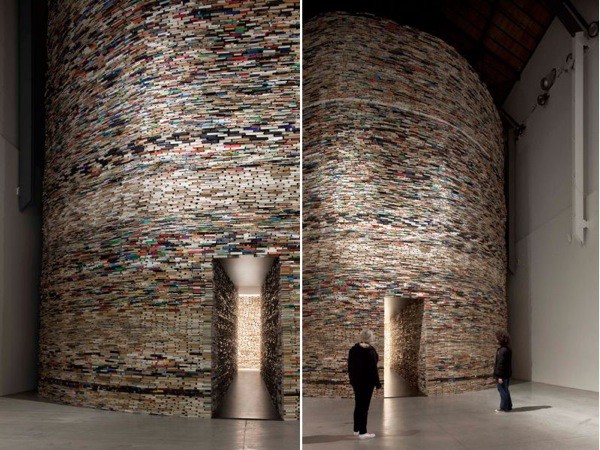
Hey there and welcome to this week’s Lez Liberty Lit!
Jesmyn Ward’s Sing, Unburied, Sing won the National Book Award for fiction. (Your talking point on the National Book Award is that this year it had the highest number of women as finalists ever.) In her speech, she discussed being told over and over that her stories were not universal stories; writing at Electric Literature, Jennifer Baker elaborates: “The subtext of rejection, especially for marginalized writers, often translates to an inability to ‘reach the mainstream,’ a lack of ‘connection.’ The term ‘universal stories’ gets thrown around as though it’s an easy method to master. As though ‘universal stories’ truly means universal, when in fact it is its own code.” And at Hazlitt, Ward discusses pain, magic and realism, voodoo, legacy and more.
If you’re in Los Angeles, go see Radical Women at the Hammer Museum.
A growing body of young adult fiction examines racial injustice, writes Adrienne Green at the Atlantic.
“Durga Chew-Bose’s first essay collection, Too Much and Not the Mood, is a ranging, intricate work crowded with lush detail,” writes Annelise Jolley at the Millions.
Go read Eileen Myles’s “The West”:
“It’s as simple as being
a sculpture, having
a life.”

via Electric Literature’s “The 7 Most Amazing Tunnels, Towers, and Mazes Made of Books“
Women writers from the Western literary canon were friends, but why are their friendships so often overlooked? At the Millions, Emily Midorikawa and Emma Claire Sweeney, coauthors of A Secret Sisterhood: The Literary Friendships of Jane Austen, Charlotte Brontë, George Eliot and Virginia Woolf, write:
“Persistent images of isolation can be used to weaken female power by giving the impression that there are no tried-and-tested models of intellectual collaboration between women. A one-off genius, set apart, is an aberration who poses little threat to centuries of patriarchy—as is the ambitious woman, cast as the enemy of her peers. Especially in today’s uncertain climate—when women are fighting for control over their own bodies, and when their contributions are so often dismissed—we must resist such insidious tactics of divide and rule. The rich history of sisterhood offers a shaft of light during dark times: it is imperative to turn to the example of female forebears—women who always knew that they could best achieve greatness by aligning themselves with other women.”
In the Los Angeles Review of Books, Ursula K. Le Guin discusses her process, science fiction and fantasy, the imagination and more.
“Paying attention to nature is a springboard to the sacred.”
Tag yourself: how 11 writers organize their personal libraries. I’m one shelf of future reading, a few shelves by subject but I have to be into the subject or I don’t want to look at it all at once, and the rest alphabetical.
Canada’s Room Magazine is going to have a queer issue. Submissions close January 31.
Read these books for the Trans Day of Remembrance. Read these books by women this month. Read this book if you have a dead mom. Read flash fiction by women. Read these classics in translation. Read lesbian romance. Look at the most beautiful books of 2017. Read these 30 dystopian novels by and about women.

Thank you for all these things, especially the Eileen Myles poem! I’m working my way slowly through Afterglow: A Dog Memoir and I may turn back to page 1 and read it again when I finish. There’s just so much going on.
My mom always had a huge garden, and she always told me that she organized it by letting the plants tell her where they wanted to live. She’d maybe have a vague idea of who should be grouped together (tomatoes with marigolds and so on) but she would always just take them out in the yard and let them tell her where they should be. (When I tell people about this they think she’s totally lost her marbles, but I think it’s delightfully whimsical.)
That’s how I’ve found I organize my books. With the exception of comics, which mostly all go together, I don’t have a logical filing system because I let the books tell me where they want to live. I can’t explain it, it’s a gut feeling that Marilynne Robiinson absolutely HAS to go between Octavia Butler and Beowulf.
Don’t tell my friends I said this though. They’ll think I’ve lost it.